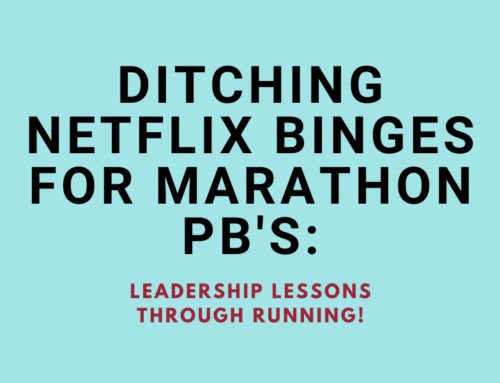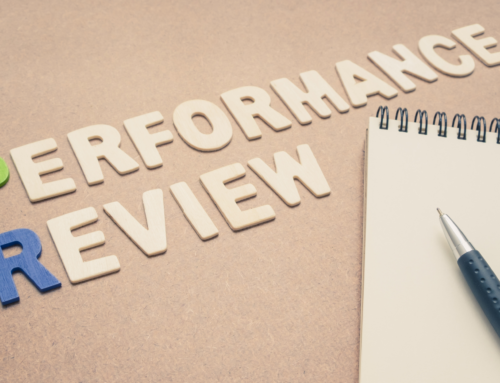In the wake of the global coronavirus pandemic leaders everywhere are being tested. Governments, Health Ministers, CEO’s and business owners are scrambling, struggling to cope and make rational decisions in an environment that they have never encountered before.
In Australia, there is an enormous amount of debate over whether we are doing too little or too much to stem to the spread of COVID-19 and we are all undoubtedly asking ourselves…
- Is this threat real or are we overreacting and buying into media hype?
- Is there a hidden agenda globally and is this crisis a test to see how far we can limit civil liberties?
- Should we really be taking it more seriously? Are we the next Italy?
- Is it going to get so bad that millions will die?
- Is the Australian Health Care system up to the task?
- Should we shut down the country now, or later, or at all?
- What impact is this going to have on the economy, jobs, my business and my family?
One thing is clear, that in a time of crisis, leaders around the globe have two options. Rise to the challenge or fail dismally. Time will only tell whether our government is doing what is right or whether other countries like South Korea or Singapore, who have taken strict pre-emptive steps,have taken the right approach.
Of late, HR Gurus have been inundated with desperate calls from our clients and the SME community as they try and navigate these unchartered waters. Their response says a lot about their approach to leadership. Here’s what I have noticed so far.
There seems to be two responses. One of flight and one of fight.
Some business owners are panicking, instantly talking about layoffs, seeking advice on how they can stand people down with no pay, feeling outraged that they should try or potentially will, lawfully be required to pay people when their business starts to suffer as a result of the pandemic.
I cannot help but feel shocked and dismayed by this response. But I am not surprised as in many cases these leaders are having a flight response as a result of the threat or stress they are under. Understandable, right?
Yes but, I believe it also says a lot about their leadership style. These flight style “ME before WE” leaders are the types who would happily put themselves and their own interests first. Crisis or not. These leaders see their employees as a mere commodity and a vehicle for their own financial success.
Now when the chips are down, and people’s livelihoods are at stake, they happily throw them to the curb to protect their own profits. Don’t get me wrong, I am sure many business owners (particularly small business owners) are already operating on a dime, struggling to manage cash flow and this response is only natural. However, there are also many big Corporates and other businesses who have enjoyed fat profits for many years, in some of the best economic times we have ever seen. So where is all that fat now? Surely many businesses have a buffer to manage in such times? I believe it is their social responsibility to do the right thing. Yet, who am I to pass judgement? Capitalist thinking actually promotes corporate irresponsibility. I don’t need to tell you how this has panned out over the past years. The GFC was a stark reminder, have we not learned from our mistakes?
In contrast, we are also seeing a very different response. One that should be commended, celebrated and shared. The opposite side of the coin is the leader who stands to fight. Stands to fight for their business and their people and remains calm in the face of this crisis. These servant leaders are taking stock and seeking counsel from their advisors and experts so they can effectively make informed decisions rather than simply reacting to the situation.
I cannot help but think that the sentiments of Simon Sinek’s book Leaders eat last have never been more applicable. If you have not had the chance to read this book here is a synopsis:
“In his work with organisations around the world, Simon Sinek noticed that some teams trust each other so deeply that they would literally put their lives on the line for each other. Other teams, no matter what incentives are offered, are doomed to infighting, fragmentation and failure. Why?
The answer became clear during a conversation with a Marine Corps general. “Officers eat last,” he said. Simon watched as the most junior Marines ate first while the most senior Marines took their place at the back of the line. What’s symbolic in the chow hall is deadly serious on the battlefield:
Great leaders sacrifice their own comfort – even their own survival – for the good of those in their care.
Too many workplaces are driven by cynicism, paranoia and self-interest. Whereas the best ones foster trust and cooperation because their leaders build what Simon calls a “Circle of Safety” that separates the security inside the team from the challenges outside.”
HR Gurus have been working with many leaders to navigate this unknown territory, and through a consultative approach, together we have come up with some really practical measures that leaders can start implementing right now with the “Leaders eat last” philosophy in mind. This will ensure you protect your employees and create a circle of safety where people are ready to go into battle together. These include:
- Developing a contingency plan which models a number of different scenarios and maps out how you will react in each scenario. This approach will ensure you are prepared to instigate each plan as you need to. It will also enable you to act rationally and calmly in the face of a crisis. Think of this as your battle plan.
- Communicate with your people where practical about these plans. Then communicate some more. People and teams need certainly right now, certainty creates a circle of safety and they are looking to their leaders for guidance on how they should be reacting. If you are panicked and have your head in the sand or are crumbling in front of them, rest assured they will follow suit. Not a good situation. Think of this as your circle of safety plan. You want your team to be a tight unit who are thinking “WE before ME”. This is your best defence against behaviour such as hoarding.
- Bring people within your organisation together through your actions, words and empathy. Some business leaders have announced they will be taking a pay cut themselves. Alan Joyce has decided to not take a salary for the rest of the year. This is the time to sacrifice yourself. Particularly if you are in a much better position financially than your employees or even peers. In Simon’s book, he also describes one companies actions during the GFC where instead of making people redundant they asked people to pool their paid annual leave.
Employees who were in a good financial situation could gift employees their paid leave creating a circle of trust and safety. You maybe surprised how your employee community will react when asked to band together in a time of need, to help each other.
- Further to this, if possible, let your people know that you will be paying them, for as long as you can. That your primary goal is to stay in business and keep people employed. Allow people to access paid leave where possible. Qantas have just announced they will be standing down many employees and allowing them to access Long Service Leave early, as well as allowing them to take paid leave at half pay. All good messages to the employees that you care about them and that you want to keep as employees.
- Use this time to focus on how you can innovate and pivot. Although the potential downturn may decrease your demand for certain products or services, think about what else you can offer that is relevant in these times.
- Work with your community, industries and competitors on collective actions such as redeployment opportunities. This is the time to band together.
And finally,
- Leaders need to seek help; this is a stressful situation and you are all human. There is nothing wrong with reaching out, talking to professionals and accessing coaching and counselling, should you need it. It’s important than you can process what is happening within your own world and manage your health
Consider this, the organisations with positive leadership strategies who manage this crisis effectively will come out of this crisis stronger and better than ever. If you create a circle of safety for your employees now, think about the loyalty, motivation and engagement this will drive later.
There are some things you can only learn in a storm and I cannot help but look to Jacinda Ardern who said:

Jacinda was referring to climate change but her words ring true now, and you cannot help but applaud her proactive reaction to the COVID-19 crisis in New Zealand. So…
Be like Jacinda. Don’t be a Trump.
HR Gurus is here is to support the business community in these times and is offering FREE 30 minute coaching sessions for business owners who are in need of support. If you are interested complete the form below.
Continue Reading
Get a personal consultation.
Call us today at 1300 959 560.
Here in HR Gurus. We make HR simple because it should be.





